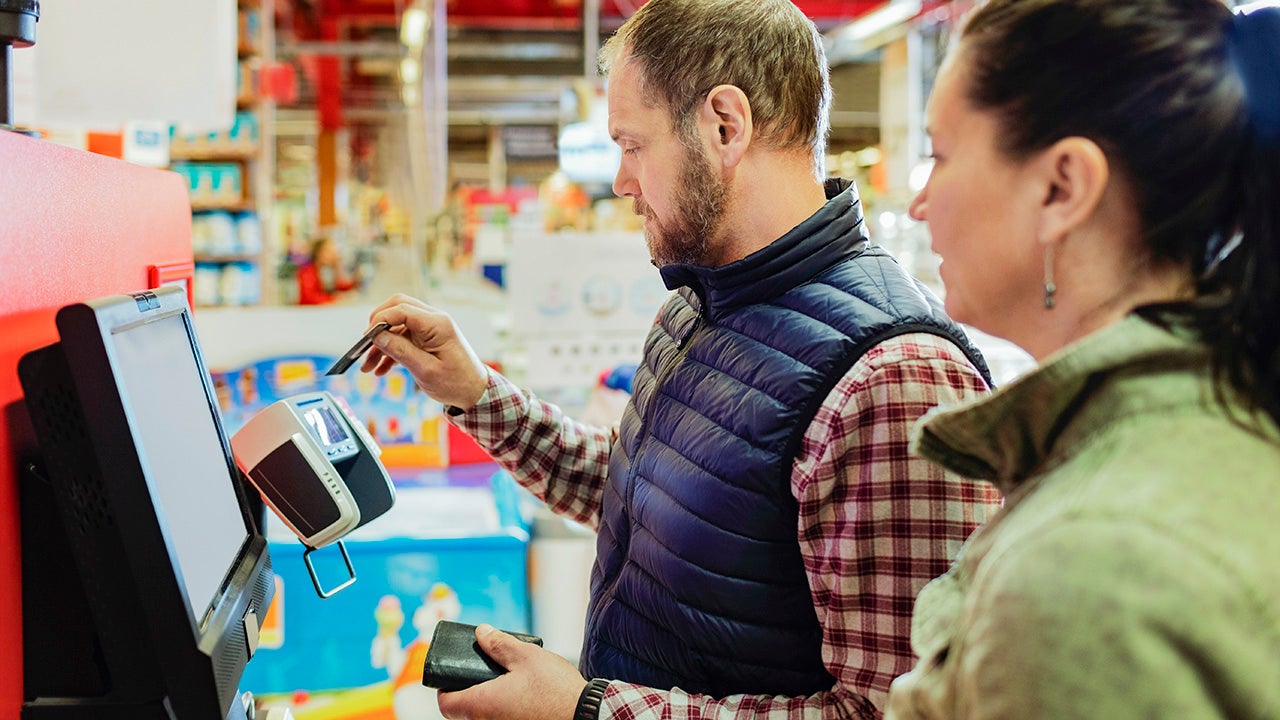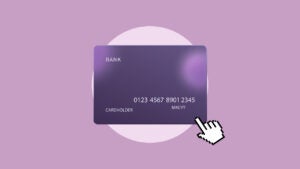Debit vs. credit card: What’s the best way to pay?

Key takeaways
- Debit cards let you pay for things with money in your bank account, while credit cards pay with a line of credit.
- A debit card can be handy for preventing overspending and interest charges, as well as for withdrawing cash.
- A credit card can help you build your credit history, earn rewards and benefit from better fraud protection.
Debit and credit cards look the same, but they work differently. Further, those differences can affect your credit score, interest charges or rewards potential.
Some people assume debit is safer than credit, but it’s usually the other way around. Others don’t realize that using a credit card can help build the credit score needed for a car loan or mortgage.
Is credit always the best choice, or are there times when it’s better to use a debit card? Learn more about how debit cards work versus how credit cards work and when each one is right to pull from your wallet.
Debit card vs credit card: What’s the difference?
The main difference between debit cards and credit cards is where the money comes from when you make a purchase.
Debit cards let you spend directly from your checking account balance. That means your spending is limited to whatever’s in the account, and you’ll likely be charged an overdraft fee if you spend more than you have.
Credit cards let you spend from a line of credit that you pay back later. While you don’t have to pay off the whole bill every month, you’ll start accruing interest charges on any unpaid balance. Using a credit card responsibly can help improve your credit score — but late payments or a high credit balance can also hurt your score.
Note that both debit and credit cards come with a unique number, usually 16 digits, and can be used to make payments both in person and online. Both can also be added to digital wallets or payment apps.
| Debit cards | Credit cards |
| Spend money from your checking account | Spend money from a line of credit |
| Don’t impact your credit score | Can help your credit score — or hurt it |
| Rarely offer rewards | Many offer points, miles or cash back rewards |
| Limited fraud protection | Typically zero liability fraud protection |
| No annual fees | May charge annual fees |
| Easy to qualify for | May require good to excellent credit to qualify |
| No interest rates | High interest rates |
| Withdraw cash for no fee at your bank’s ATM | Charges a cash advance fee |
Do people use debit or credit cards more?
The Federal Reserve Bank of Atlanta’s 2024 Survey and Diary of Consumer Payment Choice (SDCPC) reported that U.S. cardholders made about 40 percent of their purchases a month with a credit card and 33 percent with a debit card. Not only did consumers use their credit cards for more purchases, but they also used them for higher-cost purchases. Credit card purchases averaged $70 compared to $52 for debit cards.
Additionally, the latest Bankrate Credit Card Debt Report shows that nearly 3 in 4 Americans have a credit card. But with nearly half of cardholders (46 percent) carrying a balance — and likely collecting interest charges — it’s worth considering whether a credit or debit card is right for you.
Is a debit card safer than a credit card?
Debit cards are not generally safer than credit cards, but both are safer than cash since they come with fraud prevention measures. For instance, when you use a debit card, you’re often required to enter a PIN. When you use a credit card online, you may be asked to enter a three-digit security code.
Banks, card issuers and even federal laws help protect both debit and credit cardholders, but cardholders are the best line of defense. Here are some steps you can take to protect your cards.
- Guard your card, PIN and account info.
- Add your cards to a digital wallet.
- Shop only with reputable merchants.
- Monitor your account and quickly report fraud.
Banks and card issuers — now with the help of AI — also look for transactions that could be fraudulent. Keep an eye out for mobile alerts notifying you of suspicious charges or unusual activity. Note that scammers may also send phishing messages pretending to be your bank, so know how to protect yourself from bank fraud.
Beyond these general tips for keeping cards safe, there are some additional considerations specific to each type of card.
Debit card security features and PIN setup
The first step to securing your debit card is setting up a strong PIN and keeping it secure. From there, federal regulations can help should fraud occur.
The Electronic Funds Transfer Act (EFTA) protects you against fraudulent debit card transactions, but your liability depends on how quickly you report your card or account information lost or stolen. For example, if you report your debit card lost or stolen within two business days, your liability is limited to $50. If you report the fraud within 60 days, however, your liability jumps to $500. After 60 days, you could be liable for hundreds of dollars — up to the entire fraud amount.
Remember, too, that debit cards are tied to your checking account, so if a fraudster uses your card, it’s your money they’re dipping into. It can take days or weeks for a bank to complete its investigation and reimburse the stolen funds, which could be a problem when it comes to paying your other bills.
Credit card security features
Credit cards are one of the safest ways to pay thanks to additional fraud protections that debit cards aren’t required to have.
Credit card issuers are required by law to cover the costs of fraud after you report your card lost or stolen. That means you won’t owe a penny for unauthorized charges. Even if the purchases were made before you realized your card was missing, your liability is limited to $50 and most card issuers won’t even hold you accountable for that.
And, Importantly, if someone does make fraudulent charges on your credit card, those charges only impact your line of credit — not the cash in your bank account.
Both debit and credit cards are more secure than cash, but federal regulations on credit cards offer stronger protection than those for debit cards. For both, cardholders bear some responsibility for protecting themselves and limiting liability.
When should you use a debit card instead of a credit card?
A debit card can come in handy if you prefer to pay with cash or don’t want to overspend. Here are a few scenarios worth keeping a debit card in your wallet for.
When you want to avoid debt
Sometimes overspending and interest charges are the culprits of credit card debt.
If you have a tendency to spend beyond your means, a debit card could be handy as it will only let you spend money you already have. This is similar to the cash-stuffing method, where you only make purchases with cash you’ve allocated into envelopes. Once the cash is gone, it’s gone.
When you need cash
If you need to withdraw money at an ATM, debit cards are the best choice. If you visit an ATM associated with your bank, you likely won’t pay a fee.
But if you use a credit card to take out a cash advance, the issuer usually charges a fee. Plus, the interest rate for a cash advance is typically much higher than the regular interest rate, and there’s no grace period. That means a cash advance from a credit card starts accruing interest immediately.
When you want to avoid interest charges
The average credit card interest rate currently hovers above 20 percent, which means a credit card balance can grow quickly from month to month. If you’re paying off high-interest credit card debt, you may want to set that card aside and make your everyday purchases with a debit card for now. That way, you won’t rack up an even higher balance.
Debit cards are great for sticking to a budget, avoiding interest charges and withdrawing cash from ATMs.
When should you use a credit card?
Credit cards are flexible tools that allow you to borrow money, build credit, earn rewards and pay securely. Just keep in mind that the way you use a credit card will affect your credit score. Here are a few instances when a credit card is the right move.
When you want to earn rewards
A few debit cards offer cash back, but you won’t earn nearly as many rewards with debit as you can with credit. Some rewards checking accounts give you 1 percent cash back on debit card purchases, while the best cash back credit cards give you at least 1.5 percent on general purchases and as much as 6 percent cash back on things like groceries, dining and entertainment.
Three in 5 Americans (60 percent) have a rewards credit card, according to Bankrate’s 2024 Credit Card Rewards Survey. If you can qualify for the best rewards cards, you can earn lucrative points, miles or cash back much more quickly than you would with a debit card.
When you want to build your credit score
Having a strong credit history and good credit score can help you qualify for the best terms and rates when you apply for credit products such as car loans, mortgages and future rewards cards.
Using a credit card responsibly lets you practice good habits like making on-time payments and maintaining a low credit utilization ratio. If you’re starting from scratch, there are even credit cards for people with no credit history.
A 750 or 800 credit score doesn’t happen overnight, but having good credit card use and on-time repayment reported to the credit bureaus can lead to future loans and lower interest rates down the road.
When you need to book a hotel or rental car
If you’ve ever paid for a rental car, hotel or even a tank of gas with a debit card, you know that merchants sometimes put a hold amount on your card to cover expected or possible expenses. That amount could be $20 if you’re buying a tank of gas or $200 dollars if you’re renting a car or booking a hotel room. With debit cards, money in your account isn’t available to you until the hold is lifted. You’ll also need to have that amount in your account at the time of purchase.
Merchants can and do put holds on credit cards, but in that case it isn’t your money that’s tied up in the hold — it’s just a slice of your available credit.
Credit cards offer the opportunity to earn rewards, protect the cash in your bank account and build your credit score with responsible use.
The bottom line
Both debit and credit cards deserve a slot in your wallet. Credit cards allow you to build your credit score with responsible use, earn rewards and make transactions that require a funds hold without tying up your own hard-earned cash. On the other hand, if sticking to a budget is tough for you, a debit card can help you stay out of high-interest debt. Additionally, you’ll want to reach for a debt card when you need to withdraw cash from an ATM.
Think of credit and debit cards as financial tools in your toolbox. As with any tools, they work best when their used for accomplishing specific job.
Why we ask for feedback Your feedback helps us improve our content and services. It takes less than a minute to complete.
Your responses are anonymous and will only be used for improving our website.
You may also like






